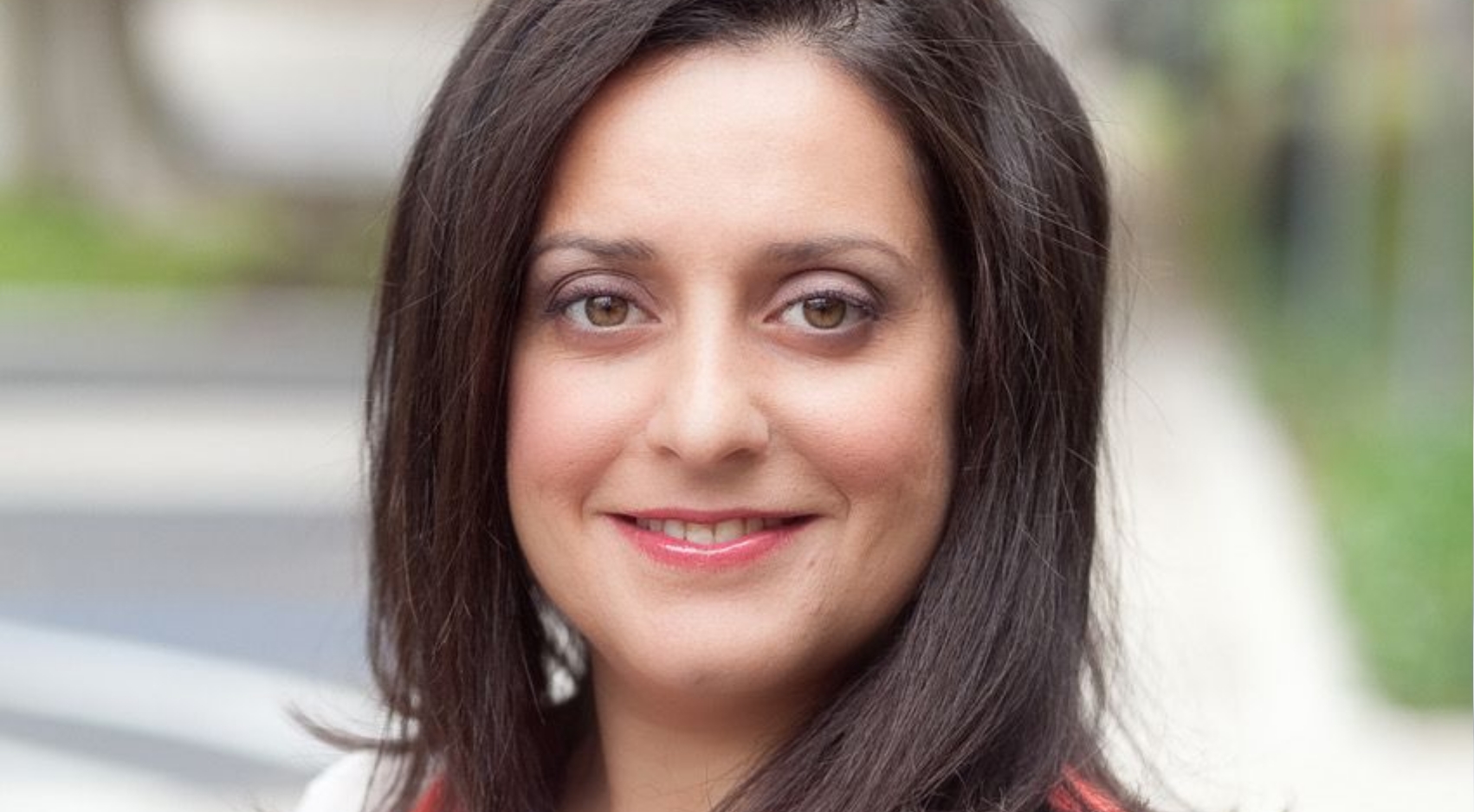Hala Madanat Appointed Vice President for Research & Innovation
Hala Madanat has supported a number of strategic priorities and initiatives including SDSUs COVID-19 response, growth in research enterprise and innovation-related developments across the university.

Hala Madanat, interim Vice President for the Division of Research & Innovation and former director of the San Diego State University School of Public Health, has been named to the permanent vice president role. Her appointment became effective August 1.
Madanat is responsible for elevating university research across disciplines, along with the university’s creative activities. She works closely with campus academic deans and vice presidents to promote interdisciplinary work and research while driving innovative practices in support of faculty and student research, student engagement and community impact.
SDSU President Adela de la Torre announced Madanat’s appointment following a national search to fill the permanent position. Madanat was ultimately considered to be best suited for the role because of her proven leadership and expertise. She helped drive the university’s COVID-19 response and is contributing significantly to the development of both SDSU Mission Valley and SDSU Imperial Valley. Under her leadership, the Division of Research & Innovation attracted a record-breaking $164.5 million in research grants in 2022.
“Hala has an extensive research profile and is a dynamic leader. She has demonstrated over her many years at SDSU the types of innovative ideas and strategic vision we need to evolve our research enterprise,” de la Torre said.
Madanat and the Division of Research & Innovation play a key role in the university’s strategic plan of achieving “R1” classification as one of the nation’s elite research universities. Moving into this classification would benefit the entire university, its students and the region, enabling access to new sources of funding and driving both economic and workforce development. Of more than 4,000 degree-granting institutions in the U.S., SDSU would become one of less than 20 that are classified as both R1 and a Hispanic-Serving Institution.
“With our research trajectory, SDSU Mission Valley development, growth of SDSU Imperial Valley and our many creative endeavors, our university is at a milestone moment in its 125-year history,” de la Torre said. “I am so pleased that we have a visionary leader in Hala to deliver on our mission and our shared vision.”
“I’m thrilled to continue working with SDSU’s remarkable faculty, exceptional students and dedicated staff as we continue to grow the breadth and reach of the university’s impact through research and innovation,” said Madanat, a Distinguished Professor of Health Promotion and Behavioral Science. “There is so much opportunity to support our region through efforts like SDSU Imperial Valley, the SDSU Mission Valley Innovation District, and our community-based research endeavors. And as we work toward R1 status, we will continue to grow our global impact; advance knowledge and scientific discovery through critical research, scholarship, and creative activities; and provide an enriching, high-impact educational experience for our students.”
Madanat joined the SDSU faculty in 2008 in the School of Public Health and later served as the chief research officer at SDSU, overseeing all aspects of the university’s research endeavors, including the San Diego State Research Foundation. Prior to SDSU, she served in faculty positions at Utah Valley University and Brigham Young University. Madanat currently serves on numerous boards including the San Diego Economic Development Corporation, Downtown San Diego Partnership, Connect San Diego, and Biocom California.
She is an accomplished researcher in the fields of health promotion and behavior sciences. She has led the evaluation of several NIH-funded, center-supported grants including the San Diego State Alzheimer’s Disease Resource Center for Minority Aging Research. In total, she has served as the principal investigator, co-principal investigator or co-investigator on 17 grants totaling more than $45 million.
Madanat served as core-investigator for the Institute for Behavioral and Community Health, addressing health disparities through community engagement. She is currently a co-principal investigator and co-investigator on several National Institutes of Health funded grants, and is the lead principal investigator of the $12 million National Cancer Institute-funded SDSU/UCSD Cancer Center Partnership.
Madanat also led SDSU’s charge through a partnership with the San Diego County Health & Human Services Agency on the Communities Fighting COVID! Project. The $5.5 million contact-tracing program was funded to enhance COVID-19 support in underserved communities.
Madanat was named SDSU’s Albert W. Johnson Distinguished Research Lecturer in 2020 in recognition of her outstanding research focused on health disparities. She also is a recipient of SDSU’s Distinguished Faculty Award for Outstanding Contributions to the university and in 2021 she was honored with the Wang Family Excellence Award for Outstanding Faculty Scholarship, which is the highest honor the California State University system grants to faculty.
Madanat holds a Bachelor of Science degree in biological sciences from the University of Jordan. She also earned a Master of Science degree in community health sciences and a Ph.D. in sociology, both from Brigham Young University.



